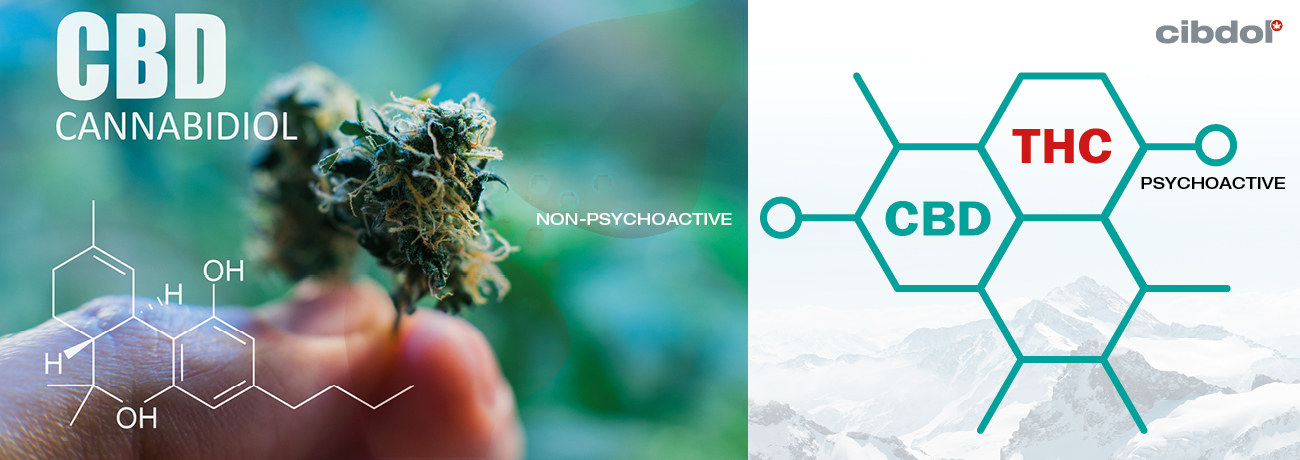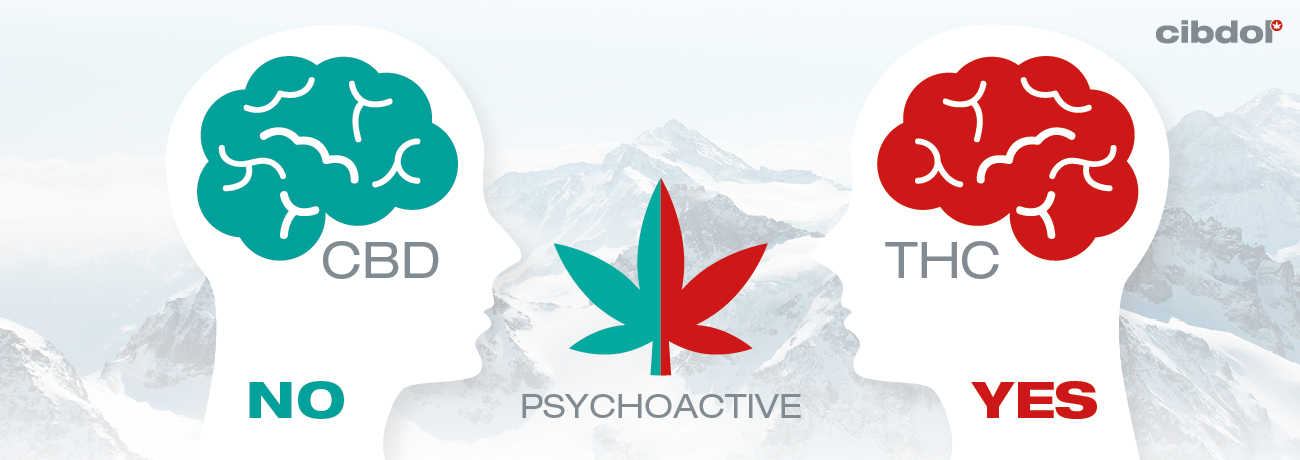Can CBD Oil Be Addictive?

Given its links to the Cannabis sativa species, it's common for people to assume that CBD may have addictive properties. Keep reading to find out how addiction works, and whether CBD oil has any addictive potential.
Contents:
Understanding addiction
Addiction is an extremely powerful state that changes our behaviour, how we feel, and how our brain responds to certain stimuli. No matter the focus of a person's addiction, it's typical for the condition to manifest in three different stages: craving, loss of control, and continued use.
When we consume a drug or take part in a pleasurable activity, the brain releases a potent neurochemical called dopamine. Now, technically, dopamine isn't the issue; without it, we wouldn't find much pleasure in healthy activities, let alone unhealthy ones.
But, the surge of dopamine can be so intense it overrides signalling between our pleasure centre (nucleus accumbens) and the logical part of our brain (prefrontal cortex). Rather than merely enjoying something and moving on, the interaction causes us to seek out the source of pleasure repeatedly.
Unfortunately, by the latter stages of addiction, typical neurological processes are entirely overridden, and many addicts will continue to use a substance regardless of the side effects.
How does CBD oil work?
When we consume CBD oil, it passes through the digestive system and into the liver. From there, the compound is broken down into smaller parts and distributed around the body via the bloodstream.
You'll notice in the example above that the mechanism of addiction hinges on an “overload” that eventually leads to addictive behaviour. CBD differs from addictive substances because it does not directly bind to receptors that catalyse a release of dopamine or affect the pleasure centre. Instead, CBD takes an indirect, holistic approach, encouraging the production of beneficial endocannabinoids and various associated enzymes—there is no overload.
THC vs CBD
Uncertainty concerning CBD oil safety often stems from the fact that the main ingredient—CBD—belongs to the same family of compounds as THC. Tetrahydrocannabinol (THC) is a psychotropic compound that binds directly with receptors in the brain that affect mood, motivation, appetite, and pleasure. Thus, THC does have addictive potential, although the withdrawal symptoms are much more mild. Fortunately, as CBD does not bind to these receptors, it is incapable of producing a high.

Is CBD oil addictive?
In a 2018 review[1] of CBD, the World Health Organisation (WHO) found that the cannabinoid "exhibits no effects indicative of any abuse or dependence potential", while also adding that the compound is "well tolerated with a good safety profile" and "there is no evidence of recreational use". It appears CBD isn't addictive, but instead works with the body to encourage a balanced state.
What about full-spectrum CBD oil?
Now we know that CBD doesn't directly influence reward mechanisms in the brain, but you may be wondering about the implications of a full-spectrum CBD oil. As the name implies, these types of CBD oils harness a full spectrum of cannabinoids, not just CBD. It's also normal for full-spectrum extracts to include terpenes and flavonoids to capitalise on the synergistic “entourage effect”.
Provided full-spectrum oils are high-quality and produced to the correct standard (supercritical CO₂ extraction, third-party testing), they shouldn't contain harmful substances. Cibdol prides itself on the purity and safety of its CBD oil, so you can enjoy the enhanced influence of full-spectrum extracts without worrying about psychotropic side effects.
Can CBD oil help with addiction?
While it appears CBD isn't addictive, this doesn't mean CBD's relationship with addiction is entirely moot. Researchers have turned their attention towards the compound's influence on withdrawal symptoms. Studies exploring the effect of CBD on addiction remain in their infancy, but publications such as Epilepsy & Behavior have already published clinical trials[2].
However, as we've already outlined, addiction is an incredibly complex mechanism involving dozens of physiological factors. No addiction is the same, and it's possible to get addicted to just about anything. As such, more extensive long-term trials are needed before we can quantify CBD's impact on addiction or withdrawal symptoms.
Does CBD oil have any side effects?
We've covered how addiction works, whether CBD oil is addictive, and how CBD could impact addictive behaviours, but does that mean CBD is entirely devoid of side effects?
Even though CBD appears well tolerated, the compound still carries a risk of potential side effects. While none are as impactful as addiction, it's always important to know how the cannabinoid can make you feel.
Possible side effects include:
• Dry mouth
• Low blood pressure
• Lightheadedness
• Changes to appetite
• Diarrhoea
• Interaction with prescription drugs
It's important to highlight that side effects appear mild and dissipate quickly. Perhaps one of the only disadvantages to CBD is that it doesn't stay in the body for long!
Whether you'll experience side effects varies from one person to the next, but, for now, we can say that CBD doesn't appear to display any abuse potential. As to whether it can help with addiction—more research is needed.
You can learn more about CBD and how it can make you feel by browsing our comprehensive CBD Encyclopedia. If you're ready to start your wellness journey, browse the Cibdol store for a complete selection of CBD oils, capsules, supplements, cosmetics, and more.
[1] World Health Organization. (2018). CANNABIDIOL (CBD). https://www.openaccessgovernment.org/who-perspective-on-cannabidiol/80838 [Source]
[2] Schoedel, K. A., Szeto, I., Setnik, B., Sellers, E. M., Levy-Cooperman, N., Mills, C., Etges, T., & Sommerville, K. (2018, November 1). Abuse potential assessment of cannabidiol (CBD) in recreational polydrug users: A randomized, double-blind, controlled trial. ScienceDirect. https://www.sciencedirect.com/science/article/pii/S1525505018304839 [Source]
[1] World Health Organization. (2018). CANNABIDIOL (CBD). https://www.openaccessgovernment.org/who-perspective-on-cannabidiol/80838 [Source]
[2] Schoedel, K. A., Szeto, I., Setnik, B., Sellers, E. M., Levy-Cooperman, N., Mills, C., Etges, T., & Sommerville, K. (2018, November 1). Abuse potential assessment of cannabidiol (CBD) in recreational polydrug users: A randomized, double-blind, controlled trial. ScienceDirect. https://www.sciencedirect.com/science/article/pii/S1525505018304839 [Source]












